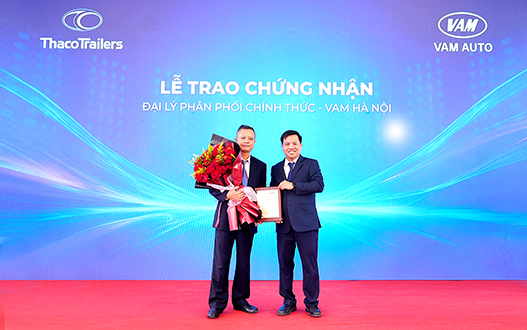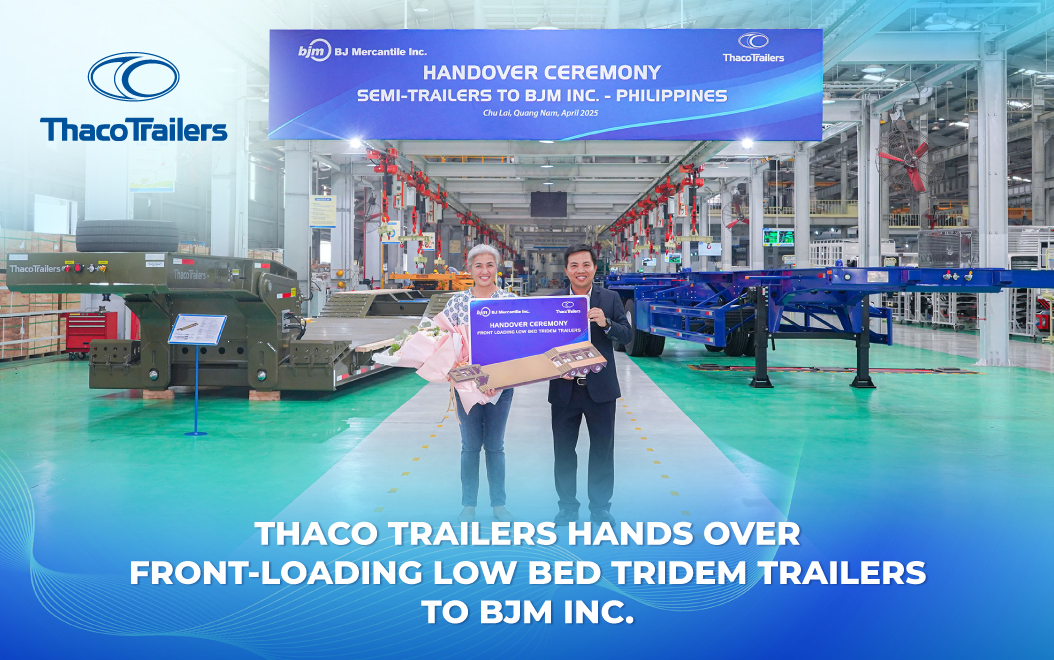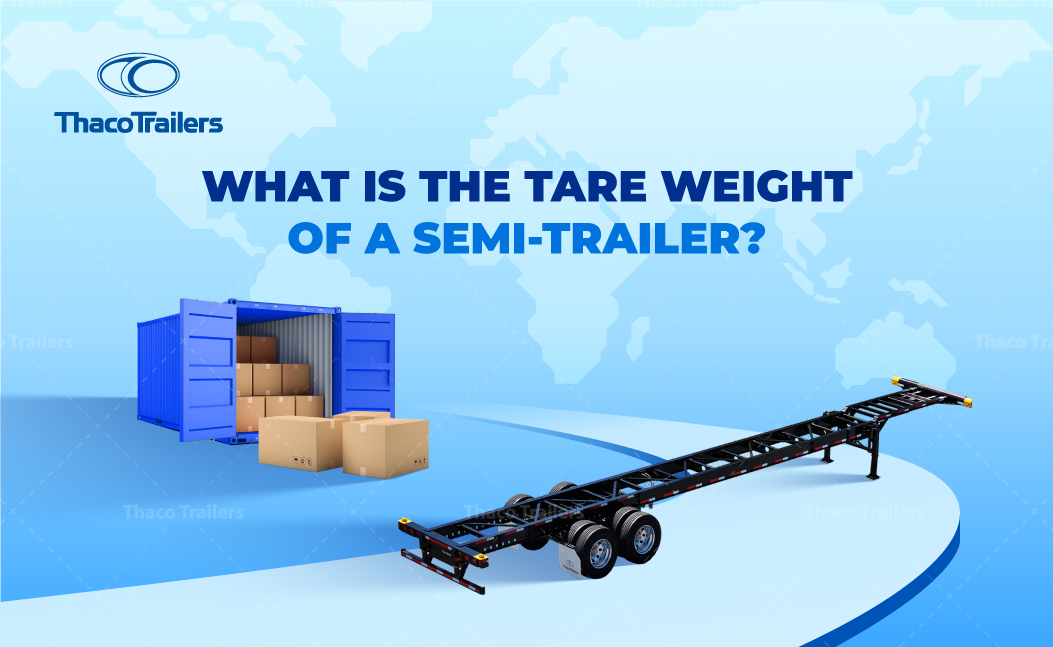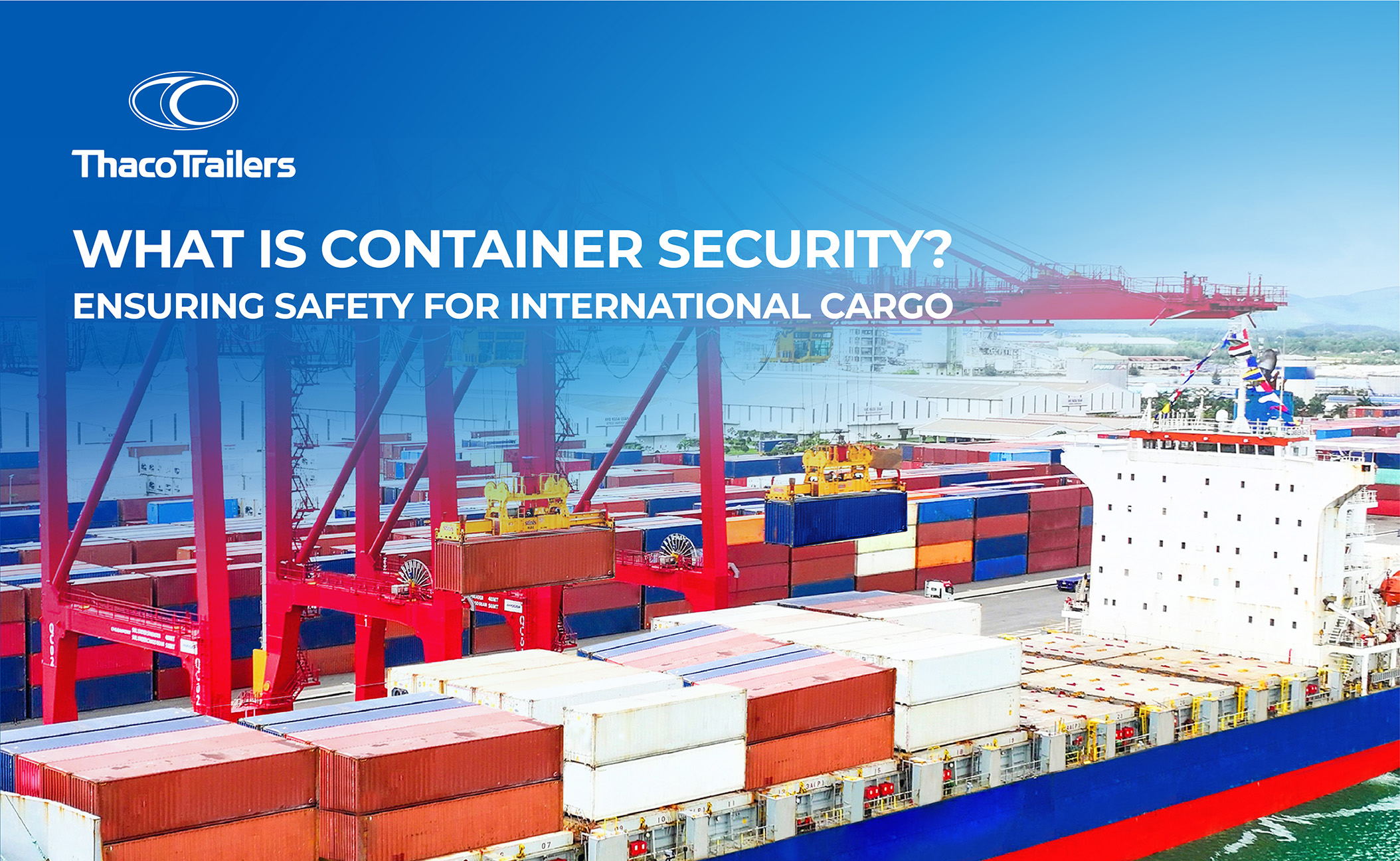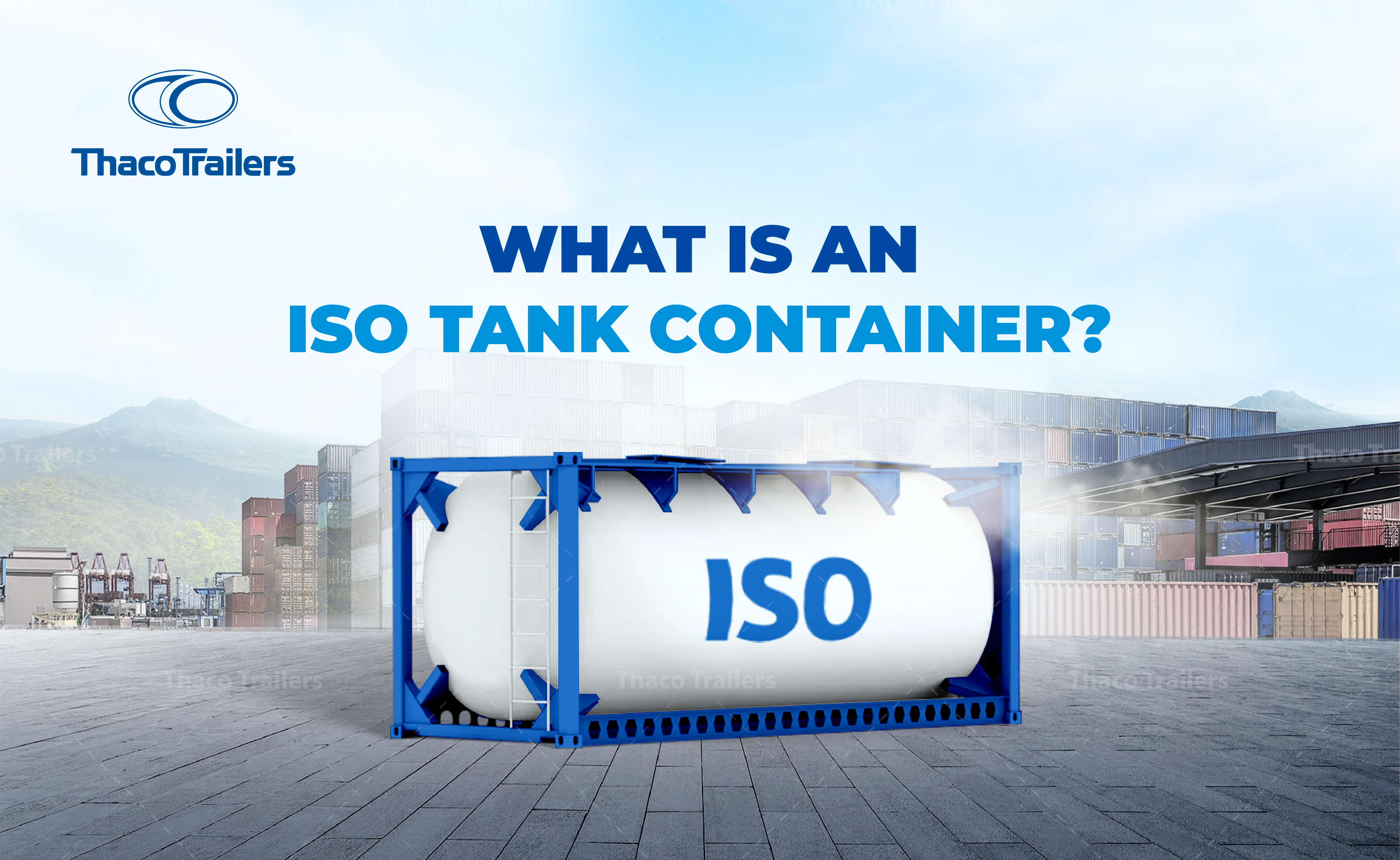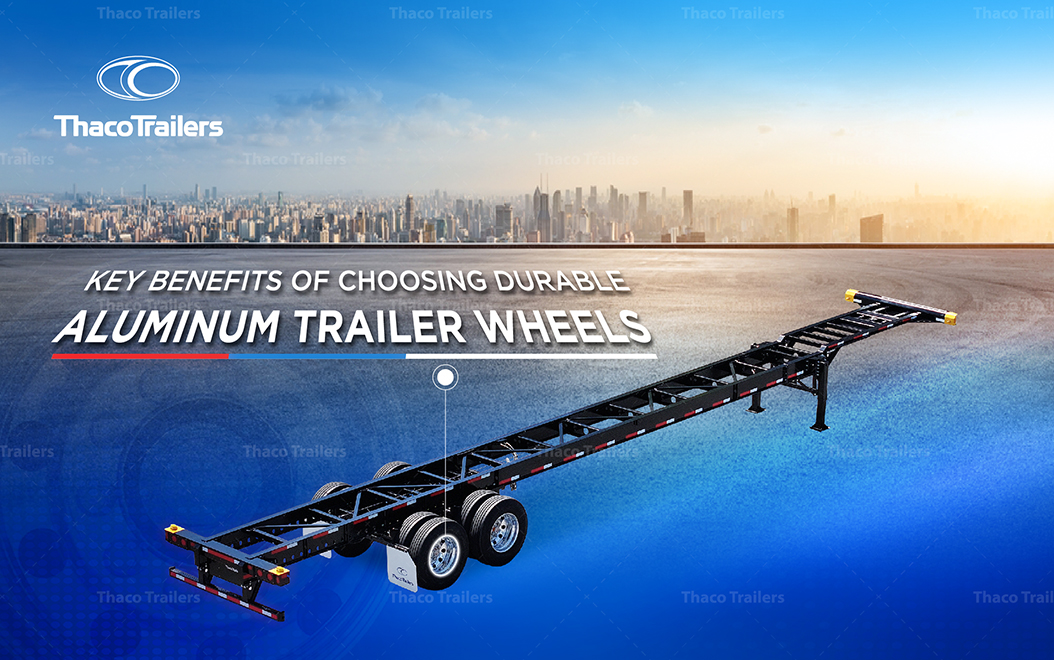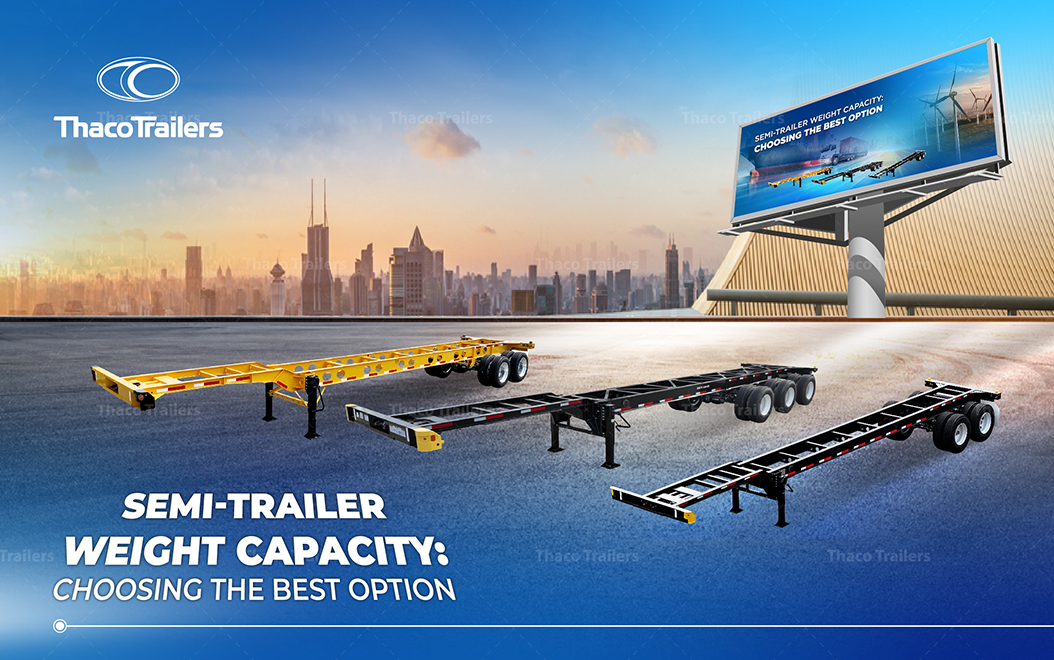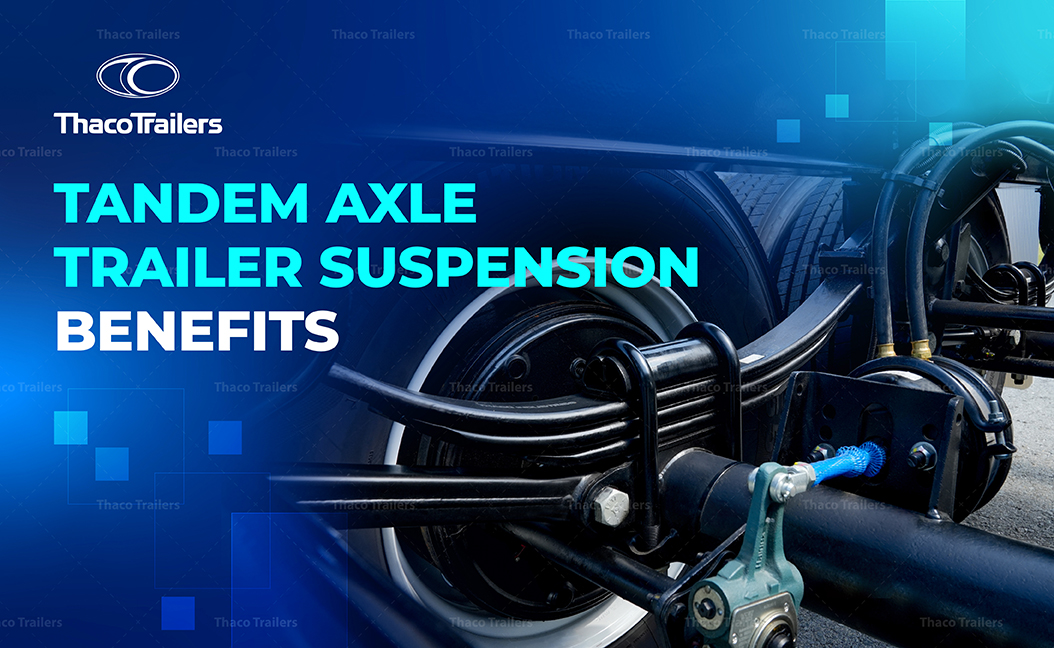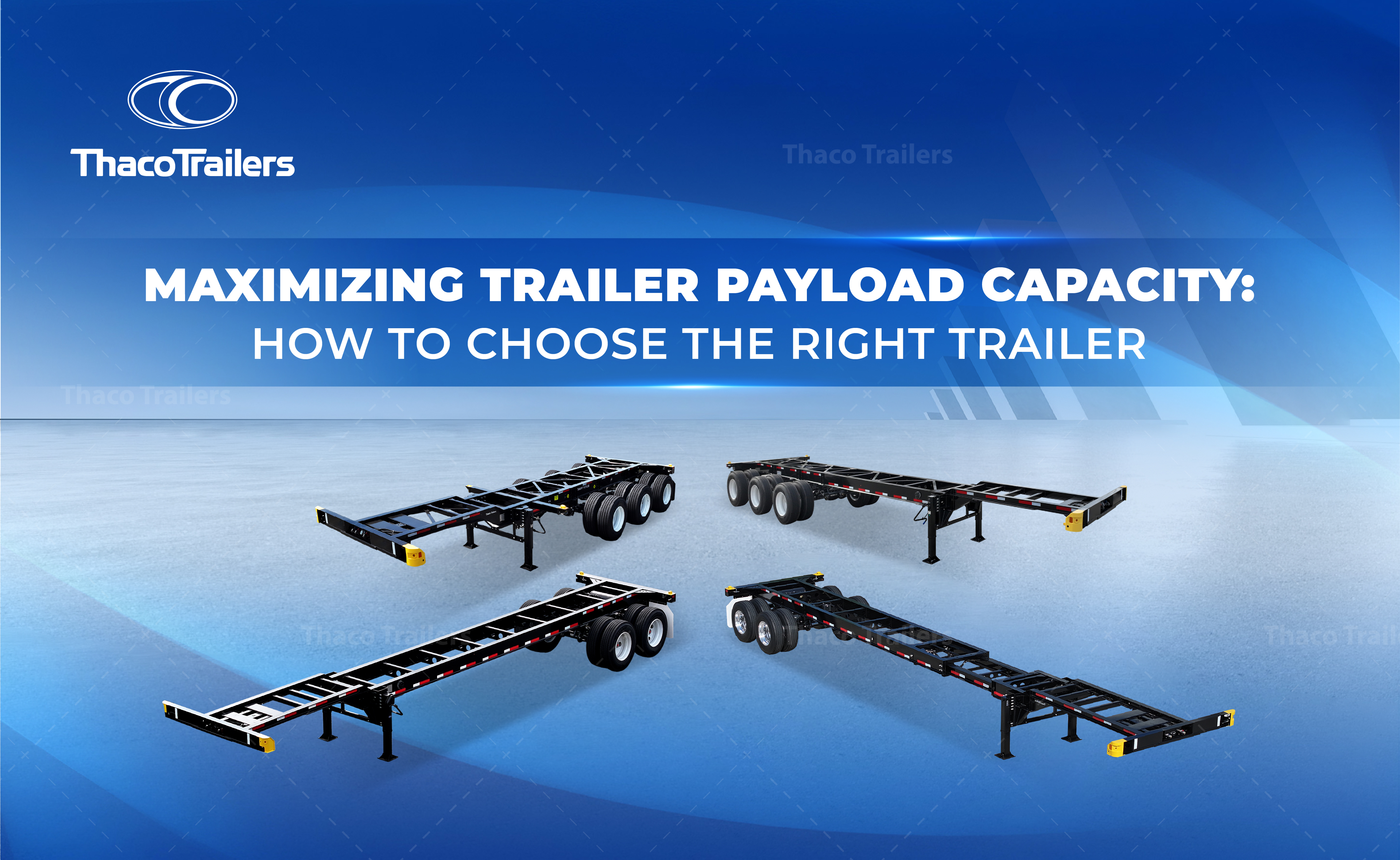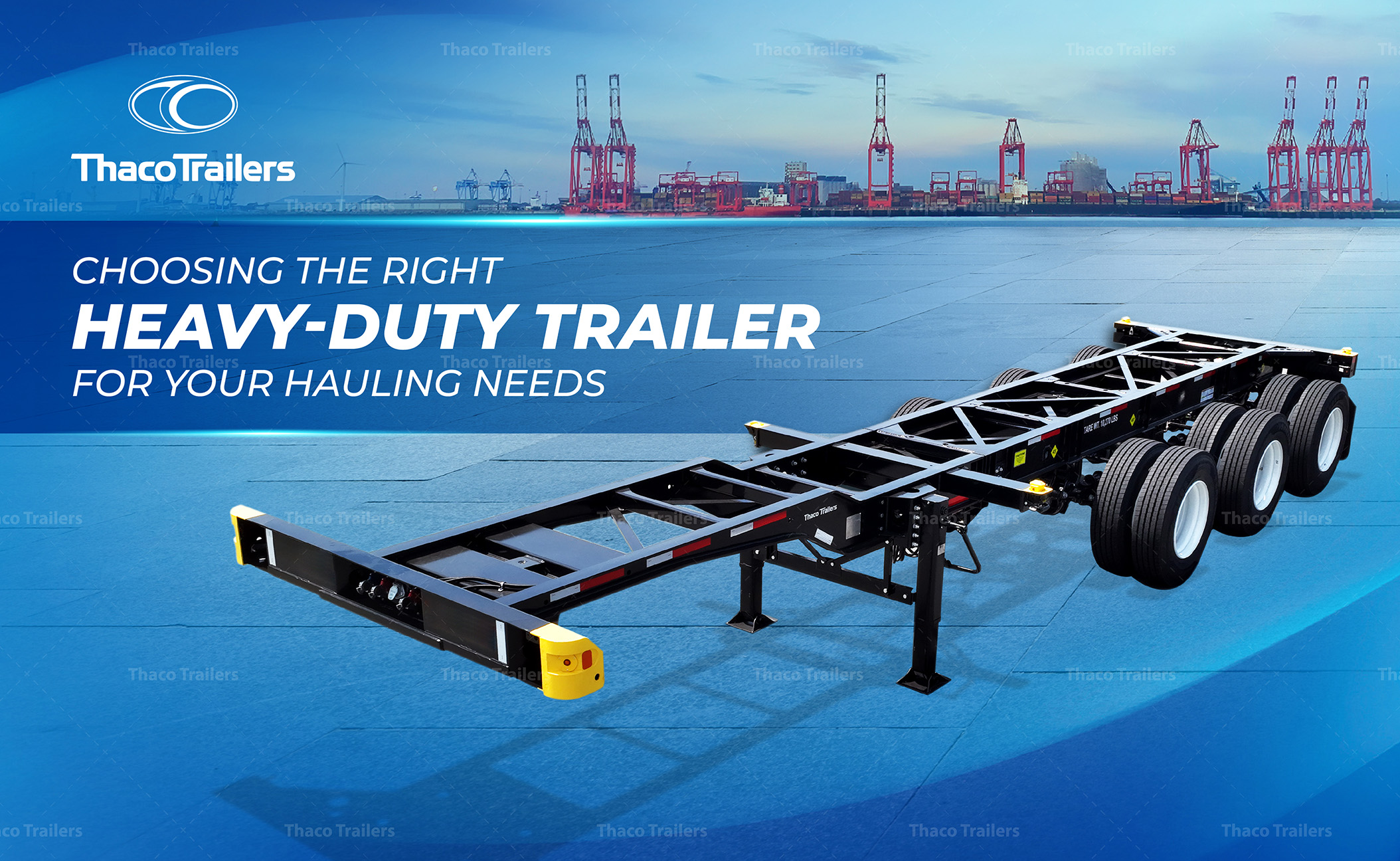WHAT IS A DRY VAN TRAILER? LEARN ABOUT TYPES AND USES
Dry van trailers are the most commonly used means of transport in the field of intermodal transportation. A dry van trailer is a completely enclosed semi-trailer that is mostly used to transport non-perishable items. It is specifically built to carry boxed, palletized, or unsecured freight and is enclosed to protect its contents from severe environmental conditions. This article from Thaco Trailers will go over important information concerning dry van trailers and what the finest dry van trailer firms do effectively.
1. What is a dry van trailer?
A dry van is a type of semi-trailer that is fully enclosed to protect cargo from external elements. Designed to carry palletized, boxed, or loose freight, dry vans are not temperature-controlled (unlike refrigerated or “reefer” trailers) and cannot carry heavy freight (unlike flatbed trailers).
The term “dry van” refers to the tight enclosure that it offers, thus maintaining the dry condition inside. While often not as strong compared to a typical intermodal container, dry van trailers usually offer a tighter seal when closed, making them more suitable for goods that are moisture-sensitive or need extra protection from dust and other environmental elements such as non-perishable foods, electronics, consumer packaged goods, furniture, etc.
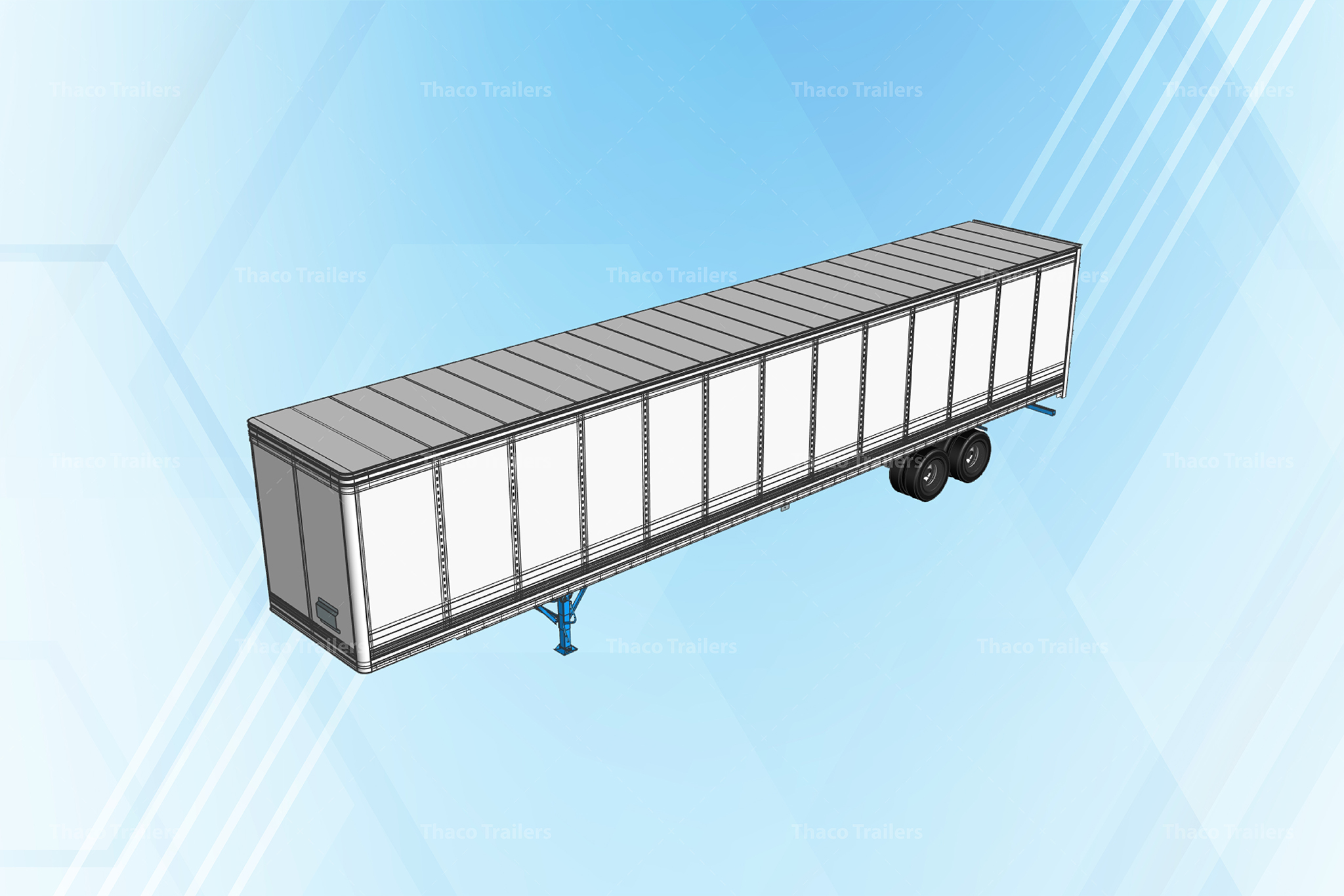
>> Read more: What is a shipping container chassis? Types and uses explained
2. Outstanding benefit of a dry van trailer
In the bustling logistics hub, dry vans are a dependable ally, versatile and robust, effectively meeting various transportation needs. Leveraging their benefits can drastically elevate your operations, ushering in increased efficiency and cost reductions. To truly grasp the value these vehicles can offer, exploring the specific advantages that make dry vans the top choice for businesses in various industries is essential.
>> Read more: Top container chassis manufacturer exporter to the US
2.1 Optimized performance and cost savings
Dry van trailers offer numerous advantages for businesses needing to transport goods, building materials, and more. One of their most significant advantages is their exceptional flexibility, making them ideal for a wide range of goods. Companies looking for an optimized and cost-effective method for transportation will find dry van trailers particularly beneficial.
Additionally, they are available and do not require additional services or special features, which helps minimize operational costs. Their standardized design streamlines the loading and unloading process, saving both time and labor expenses. Moreover, dry van trailers with lightweight materials further enhance efficiency by reducing fuel consumption during transportation. With these advantages, dry van trailers offer an ideal combination of cost savings and operational efficiency, making them a practical choice for businesses seeking to optimize their logistics operations.
2.2 Reliability and durability
This method allows building materials, medical equipment, and non-perishable food products. Because they work well for transporting consumer packaged goods, dry vans are the most frequently used equipment type. Products such as clothing, furniture, and electronics are commonly shipped via dry van trailers. Beside these items, they are also well-suited for shipping machinery and parts, nonperishable foods, and even household goods.
Additionally, dry van trailers are renowned for their exceptional durability, thanks to their robust construction. Featuring reinforced metal frames, strong walls, and solid flooring, these trailers are designed to resist the wear and tear while enduring harsh weather conditions
2.3 Safety and security
The most critical benefit of using dry vans is the protection they provide. With their fully enclosed structure, dry vans safeguard the cargo from external elements, such as changing weather conditions and road debris. Because the equipment is enclosed on all sides, shipments are shielded from weather hazards like high winds, rain, or direct heat. The enclosure and ability of the trailers to be locked also protect against cargo theft.
3. Common types of dry van trailers
Dry van trailers are the most widely used in the freight transportation industry, with popular types including 28-foot, 48-foot, and 53-foot models, along with box trucks. These enclosed trailers provide protection from the elements, making them an ideal choice for transporting valuable or perishable cargo.
3.1 28-foot dry van trailer
28-foot dry van trailers are commonly used for moving Less-Than-Truckload (LTL) shipments due to their small size and thus cost-efficiency for shippers. Measuring 28’ x 8’ x 9’ (L x W x H), they can accommodate up to 22,500 pounds of freight and 14 standard pallet positions across their floor space.
3.2 48-foot dry van trailer
A typical 48-foot dry van trailer often allows payloads up to 43,000 pounds in weight and 24 pallets in size, approximately doubling that of a 28-foot dry van trailer. It is often regarded as the ideal balance between payload capacity and overall cost when compared to the 53-foot and 28-foot options.
3.3 53-foot dry van trailer
The most common types of dry vans on highways, these trailers typically have dimensions of 53’ x 8’ 6” x 8’ 6” (L x W x H). They can accommodate up to 45,000 pounds of freight and up to 26 standard pallet positions across their floor space, providing a small extra space compared to a 48-footer. This size is also common for LTL shipments. However, most Full-Truckload (FTL) shippers prefer this size to optimize their operational costs due to the reduced number of trips necessary.
3.4 Box truck
Box trucks, also known as straight trucks, are single-unit vehicles compared to a dry van trailer truck setup which consists of a separate trailer attached to a semi-truck cab. A box truck is typically 10ft–26ft long, providing a smaller capacity than dry van trailers, and is more suitable for lighter cargo and shorter distance shipments. Despite its lower payload limit, its small size is its advantage, providing exceptional maneuverability in urban areas and residential neighborhoods, and is extremely common for last-mile deliveries. Its lower deck height allows for easier loading and unloading, making it more feasible to load and unload cargo at locations without a loading dock.
4. Find the right dry van trailer for your business
To find the perfect dry van trailer that is suitable the most for your business, you should consider the 6 factors below.
4.1 Understanding your business needs
Choosing the right dry van trailer according to your business needs is crucial to maintaining operational and cost efficiency. Factors such as your business scope, scale, and main target market can help determine whether you should invest in a smaller-sized dry van trailer, a larger trailer, or a box truck.
4.2 Trailer types and specifications
In addition to selecting the appropriate trailer for your company’s requirements, it is crucial to pick one based on its specs. In addition to the trailer’s size, its rated payload capacity is an essential factor to ensure that the selected trailer can accommodate the required weight for your transportation needs. The kind of types of goods your company transports – perishable food, electronics, or moisture-sensitive items will dictate the appropriateness of a dry van trailer, a reefer, or a standard container trailer. Dry van trailers are optimal for enterprises conveying non-perishable food, electronics, and other items that do not need temperature regulation. For businesses often engaged in last-mile deliveries, a compact 28-foot dry van trailer or a box truck would be optimal because of its easy maneuverability in cities.
4.3 Flooring material options
The type and condition of the flooring in the dry van trailer can affect the loading and unloading process. Look for trailers with durable, slip-resistant, and easy-to-clean flooring materials, such as hardwood, aluminum, or composite materials, that can withstand the weight and movement of cargo during loading and unloading operations.
4.4 Roof options for natural light
Besides conventional aluminum roof panels, translucent roofs with fiber-reinforced plastic (FRP) composite materials provide natural light to the vehicle interior. This is a great option for improved visibility inside the van without requiring the installation of electric lighting systems, making it ideal for fleets who frequently load and unload as the natural light makes it easier to identify specific cargo, resulting in safer and more productive work. FRP roofs also significantly reduce the overall weight of the van, totaling an increased payload capacity and thus fuel efficiency while still providing abundant weatherproofing to the interior.
4.5 Suspension system
The suspension system is one of the most important components when configuring your desired dry van trailer. Although often configured with a tandem axle setup, a dry van trailer can also be customized with a tri-axle setup or even more axles. This can alter the payload capacity of the trailer, as well as the maneuverability of the vehicle. A good suspension system must also consist of high-quality, up-to-standard components to ensure a safe trip for transported goods.
4.6 Budget and value considerations
When choosing a dry van trailer, balancing budget with long-term value is essential. While lower-cost trailers reduce initial spending, they might lead to higher maintenance and operational expenses over time. Investing in a durable, well-built trailer even if more costly can offer savings through improved reliability, fewer repairs, and potentially better fuel efficiency.
5. Maximizing your fleet’s efficiency with Thaco Trailers’ high-quality dry vans
Thaco Trailers offers a wide range of high-quality dry vans, including 28-foot, 48-foot, 53-foot models, and box trucks, designed to optimize operational efficiency and meet your transportation needs. These dry van trailers are particularly suited for transporting non-perishable food, electronics, and other items that do not require temperature regulation. Our products are designed with exceptional quality, delivering reliable performance and promoting efficient, sustainable transportation solutions.
What sets our dry vans apart is their exceptional customization capabilities. Thaco Trailers allows you to tailor each unit to meet your specific needs. This flexibility ensures that our dry van trailers are perfectly aligned with your unique transportation requirements, enhancing both performance and cost-effectiveness.
When you’re ready to look into the best dry van trailers for sale, Thaco Trailers has the dry van equipment and capacity you want. Our skilled staff is available to help you navigate the decision process and discover the best match for your organization. Contact our trailer professionals now to improve your operations with the dry vans you need to keep your company going ahead.
Contact Information:
- Hotline: (+84) 933 805 707
- Email address: thacosv@thaco.com.vn


